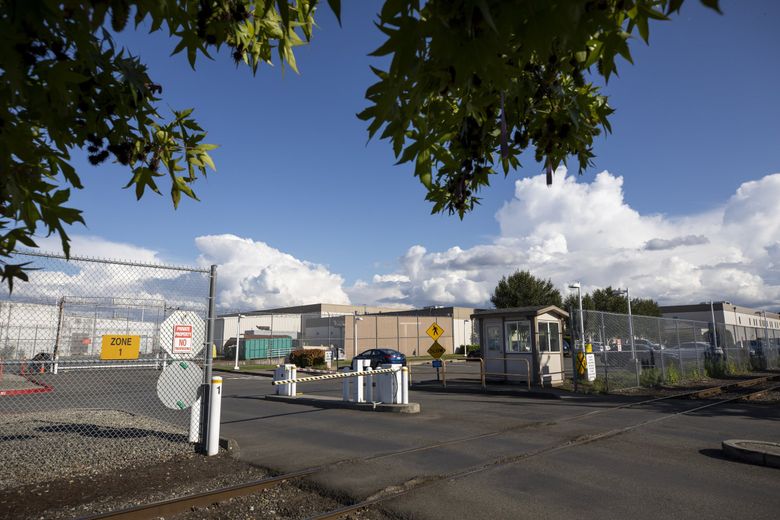
Federal judge demands ICE explain why it can’t immediately begin testing NW immigration detainees for coronavirus
by Mike CarterA federal judge has given Immigration and Customs Enforcement (ICE) officials until Tuesday to explain why they can’t begin immediate testing for the novel coronavirus of the more than 600 immigration detainees at the Northwest Immigration and Customs Enforcement Processing Center.
U.S. District Judge James Robart issued the order late Thursday in response to a proposed class-action petition by the American Civil Liberties Union and the Northwest Immigration Rights Project (NWIRP) on behalf of four vulnerable center detainees, alleging inadequate testing could be allowing the virus to spread within the facility without anyone knowing. In his order, Robart noted that the center and its private-contractor operator, The GEO Group, have tested 16 of 645 detainees and 15 staff at the SeaTac facility since the coronavirus emerged in the U.S. more than five months ago. ICE maintains there have been no confirmed cases of COVID-19, the disease caused by the virus, at the center.
The center can hold up to 1,575 detainees and historically has operated near capacity. GEO and ICE argue the additional room, strict social distancing guidelines and aggressive screening of employees and detainees have prevented the virus from entering the facility.
The ACLU and the immigration-rights group argue the coronavirus can be spread surreptitiously by some individuals who, while infected, show few or no symptoms. They say that the dearth of testing makes the “lack of proven cases functionally meaningless for determining if there is a risk for COVID-19 transmission in a community or institution,” according to the pleadings. The ACLU presented expert testimony at a hearing on the issue, and a number of public health officials have joined the case as friends of the court.
The petition seeks to have medically vulnerable detainees released because of their increased susceptibility to serious coronavirus infections.
“This order is an important step forward,” said Eunice Cho, a senior staff attorney at the ACLU’s National Prison Project, in a statement Friday. “Full testing … will likely reveal that the problem is much more serious than the agency has acknowledged. ICE has proven it cannot keep people in custody safe from COVID-19 — or other medical issues, for that matter.”
Advertising
There have been deadly outbreaks of the disease at other immigration detention centers in the U.S.
An email seeking comment sent to ICE spokeswoman Tanya Roman was not immediately answered. Emily Langlie, a spokeswoman at the U.S. Attorney’s Office in Seattle, which represents ICE, said the agency had no comment.
In his order, the judge noted that ICE and GEO have confirmed in pleadings and at a hearing that they possess adequate tests and resources to test everyone at the center and that there have been discussions about doing it, however it has not been done.
“However, when the court questioned ICE on why they could not immediately begin offering the test to those who are willing to have the test taken voluntarily, counsel replied, ‘I am unaware of a reason at this time,'” Robart’s order says.
The judge noted that ICE’s representation that the virus isn’t spreading undetected through the facility is undercut by a lack of testing data. The ACLU and NWIRP argue infection at the center is inevitable, pointing to evidence of devastating infections in prisons and jails throughout the country. The Marshall Project reports more than 34,000 inmates have tested positive nationwide.
The petition names as plaintiffs four detainees — Naeem Khan, Josue Castaneda Juarez, Wilfredo Favela Avendano and Josue Andrade-Machado — who purportedly represent a class of inmates particularly vulnerable to coronavirus infections, such as advanced age or those with preexisting health conditions who should be released from detention.
Robart gave ICE until Tuesday to explain to him why testing of willing detainees can’t begin immediately.
“The court’s order reinforces that ICE has a responsibility to ensure the reasonable safety of all these people who are subject to civil detention — their detention cannot be used as punishment,” said Matt Adams, NWIRP legal director. “For those who are medically vulnerable, they must be released before it is too late and people die.”
Mike Carter: 206-464-3706 or mcarter@seattletimes.com; on Twitter: @stimesmcarter.